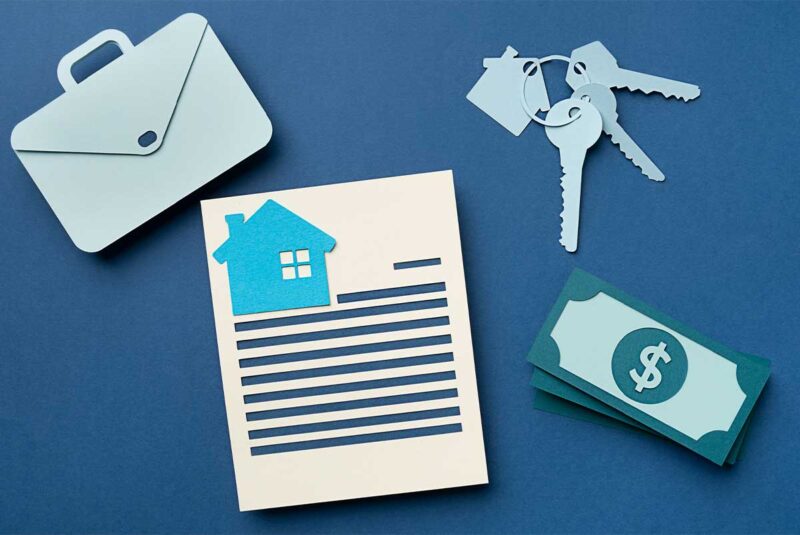Ready To Buy a Home?
Get Approved to Buy a Home
Rocket Mortgage® lets you get to house hunting sooner.
Have you ever wondered whether you should buy mortgage points? If this is your first time buying a home, we wouldn’t be surprised if you were asking yourself what a mortgage point is.
Mortgage points (aka mortgage discount points) are one of several tools buyers can use to decrease the total cost of owning a home. If you have extra cash on hand, purchasing mortgage points can help you save thousands in the long term.
Mortgage points allow you to unlock a lower interest rate on your mortgage loan. The lower rate reduces your monthly mortgage payment, freeing up cash for anything from retirement savings to debt payoff to luxury vacations.
You may be ready to pull out your checkbook, but like anything else, it’s important to consider the pros and cons of buying mortgage points. See what the advantages and the disadvantages are before you make any decisions.
What Are Mortgage Points?
Mortgage points allow you to buy down the interest rate you originally qualified for. One mortgage point usually reduces your mortgage interest rate by 0.25%.
You typically buy mortgage points upfront when you close on your mortgage. Every point you buy represents 1% of your total loan amount.
Let’s say you want to take out a $250,000 mortgage for a 30-year term with a 4% interest rate. One mortgage point would equal $2,500, and each point would drop your initial interest rate by 0.25%.
| Mortgage | No Discount Point | One Discount Point |
| Interest Rate | 4% | 3.75% |
| Monthly Payment | $1193 | $1157 |
| Total Interest in 30 Years | $179,674 | $166,804 |
Points won’t reduce the principal amount of your loan (aka the total amount you borrowed) – they only reduce the interest. In this example, you’ll save about $36 a month with the 3.75% interest rate, which is more than $400 a year. Over time, that adds up.
With 4 mortgage points – the highest number of points most lenders will let you buy down – you would lower your interest rate to 3%. You’d end up paying $129,444 in interest over your 30-year loan term, significantly reducing your monthly mortgage payment and the total amount you’d spend on the loan.
Buying mortgage points can be very helpful in the long term because of the smaller monthly payments, but (plot twist) your upfront cost to purchase the home will be higher because you pay for your mortgage discount points upfront at closing.
If you’ve got extra cash to spend at closing and can’t get the idea of lower monthly mortgage payments out of your head, speak to your mortgage broker or lender about buying mortgage points.
If you’ve already applied for a loan, check your Loan Estimate to see what your lender offers. If you decide to buy points, you’ll find your points and related details in your Closing Disclosure.
Discount points vs. Origination points
There are two kinds of mortgage points: discount points and origination points.
Unlike discount points, origination points don’t reduce interest. They go toward lender fees and other costs like loan origination, processing costs and credit inspection fees. You can think of origination points as closing costs presented as a percent of your loan amount. Like discount points, origination points are paid upfront at closing. But, in another departure from mortgage points, origination points are not tax deductible.
How Buying Mortgage Points Work
Let’s rewind.
You’ve applied for a mortgage and got approved (congrats, BTW!). Next, you’ll receive several loan offers from your lender with different terms and interest rates.
This is the moment of truth. This is when you’ll decide whether to buy discount points. It’s also when you’ll decide between a fixed or adjustable-rate mortgage (ARM).
Whether it’s a good idea to buy mortgage points will usually depend on the type of mortgage you’re applying for.
If you go with a fixed-rate mortgage, your mortgage point(s) will keep your interest rate lower for the life of the loan. If you go with an ARM, your point(s) will keep your interest rate lower until the ARM’s introductory interest rate period ends, which is typically 5 – 7 years.
If you’re considering an ARM, you’ll need to know your breakeven point to decide whether buying a mortgage point(s) is worth it.
Your breakeven point is the amount of time you need to live in the house to recover the cost of the mortgage point(s). To calculate this, divide the total cost of your point(s) by the reduction in your monthly mortgage payment.
Calculating Your Breakeven Point
Let’s say you get a loan for $250,000 and buy two mortgage points for $5,000. The savings on your monthly mortgage payments would be $71.
$5,000 / $71 = 70.4 months
Your breakeven point would be a little over 70 months, which is close to 6 years. If you’re not going to stay in the house that long, buying mortgage points might not make sense for you.
How To Negotiate Mortgage Points
Can you negotiate points on a mortgage? In some cases, yes! While the lender makes the final decision, you can boost your chances of getting a “yes” by:
- Boosting your credit score
- Throwing big money at that down payment (at least 20%)
Negotiating with your lender may be a nonstarter if your credit score isn’t 750 or higher, and your down payment is less than 20%.
When Buying Mortgage Points Could Make Sense
If you want to build equity faster or pay off the principal balance of your loan sooner, mortgage points aren’t typically the way to do it. To accomplish either of those goals, make a larger down payment or higher monthly mortgage payments.
But there are a few scenarios where buying mortgage points may make sense:
- You plan to live in your new home long enough to make it past the breakeven point.
- You want to reduce your monthly mortgage payment.
- You have a low credit score and a lot of cash saved up and can’t qualify for lower interest rates.
- You have extra cash to spend, and you want to take advantage of tax deductions.
Deducting Mortgage Points on Your Taxes
If you’ve decided to buy down your interest rate, you might wonder if mortgage points are tax deductible. After all, homeownership does offer a few tax deductions.
You can deduct mortgage discount points on home loans of up to $750,000.(1)
But before you start filling out your tax return, get familiar with the IRS mortgage interest deduction requirements to get the most out of your returns.
Most homeowners can only claim deductions for points paid toward that calendar year’s mortgage interest, so this tax deduction may need to be claimed annually for as long as you’re in the home (if you roll the points into your mortgage instead of paying them with cash at closing).[1]
Lenders typically send borrowers a Form 1098 before tax season starts. The form details how much you paid in mortgage points and interest for the year. You can record this information on Schedule A of the Form 1040, which is your itemized deduction form.
One Final Point on Mortgage Points
If you’re thinking about buying mortgage points, there are a few factors to consider: the type of mortgage you have, the cost of mortgage discount points, and the length of time you plan on living in the home.
If you want to reduce the overall cost of your loan or keep your monthly mortgage payments low, mortgage points might make sense for your wallet. Just make sure the upfront cost won’t put your present-day budget or future financial goals at risk.
Get approved to buy a home.
Rocket Mortgage® lets you get to house hunting sooner.
The Short Version
- Mortgage points can help you enjoy lower interest rates – cha-ching!
- You pay for points when you close on your mortgage
- One mortgage point costs 1% of your total mortgage amount
Internal Revenue Service. “Publication 936 (2020), Home Mortgage Interest Deduction.” Retrieved September 2022 from https://www.irs.gov/publications/p936#en_US_2020_publink1000229939




